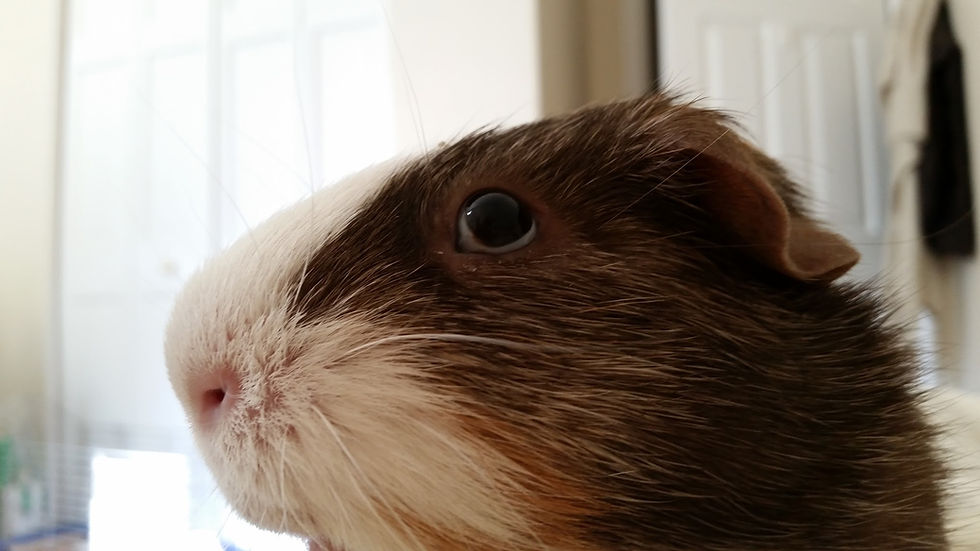The Gift of Abandoning Hope
- Big Human Jenna

- Dec 30, 2020
- 3 min read
Updated: Jan 1, 2021

This is Gus. He was probably the greatest guinea pig I've ever known. And as you can see in this pic, he was pretty annoyed at the time. I think it was because he'd just realized that I had no more carrots to give him. That, and he tended to give me this look when he was ready to go back into his cage and I'd been selfish with my own desire to cuddle him. It's easy to misread the moment and to force our own will on others.
For me, this has also translated into trying to force my own will onto destiny and the greater force that is life. Some call it spirit, some call it God, some call it the universe. Some might even call it the Force (Star Wars fans, you know who you are:). When I've sought to bend life to my will, well, it's yielded results similar to Gus's reaction. And yet because I am a stubborn soul who tends to use Sysphian methods, it's taken me a while to learn to stop grasping and trying to control things. And how have I done this?, you might be wondering.
1. I've abandoned hope
In her book, "When Things Fall Apart" Pema Chodron explores what happens when you embrace hardship as part of the human experience. She asks us to lean into suffering instead of avoiding it or trying to escape it. Her point is that when we aren't trying to lessen the pain because we no longer fear it, we won't rely on hope to reduce it. It then becomes easier to just be with things exactly as they are. She calls this practice "abandoning hope" and I think it's pretty close to perfect. As a trauma survivor, this is a lot harder than it sounds. Trauma survivors' veins are filled with fear and suffering. It's EXTREMELY challenging ( some would say impossible) to not want to control both everyday and long-term outcomes because our nervous systems are attuned to danger at all times. I used to tell people I had a PH.D in anxiety half jokingly. But it's true. When kids and adults endure overwhelming experiences their bodies are primed to escape in one way or another. It's survival. And try telling your body it needs to learn a better way to modulate thousands of years of biology. Ummm. It's not easy.
2. I've let go of "becoming" and instead embraced being
On the path to "becoming", I realized early on that sanity and feeling grounded comes from learning how to just be. Becoming is a future state with no sides, no edges and a lot of room for things to go sideways. If we're always becoming, then we're never here and we're certainly never good enough or whole. When we can meet ourselves exactly where we are and develop gentleness, curiosity and openness in the moment, we can begin to practice the art of being. In the silence of being we can also discover the wisdom we tend to look for outside of us. Being is the beginning, the middle, and the end. 3. I've let go of trying not to think or feel
Through four decades of meditation practice, I've been able to notice my thoughts and feelings. When I notice myself gripping onto life and wanting to be the director of my destiny, I can breathe into that experience and allow it to be here. I can laugh at myself and hold space. This means knowing when I need to release which could be through a walk, journaling and/or talking to a loved one. And in this practice of noticing is also the continued work to apply acceptance in place of judgement wherever possible. It's riding the waves of thoughts and emotions without embodying them or getting hooked into a story about them.
These are just a few ways I continually balance on the see saw of being versus doing. :) If you'd like to learn more or are interested in filling up your tool box with resiliency skills for yourself or your little humans, please feel free to contact me at miloseastar@gmail.com
Happy New Year everyone!!!!
With love,
Jenna




Comments